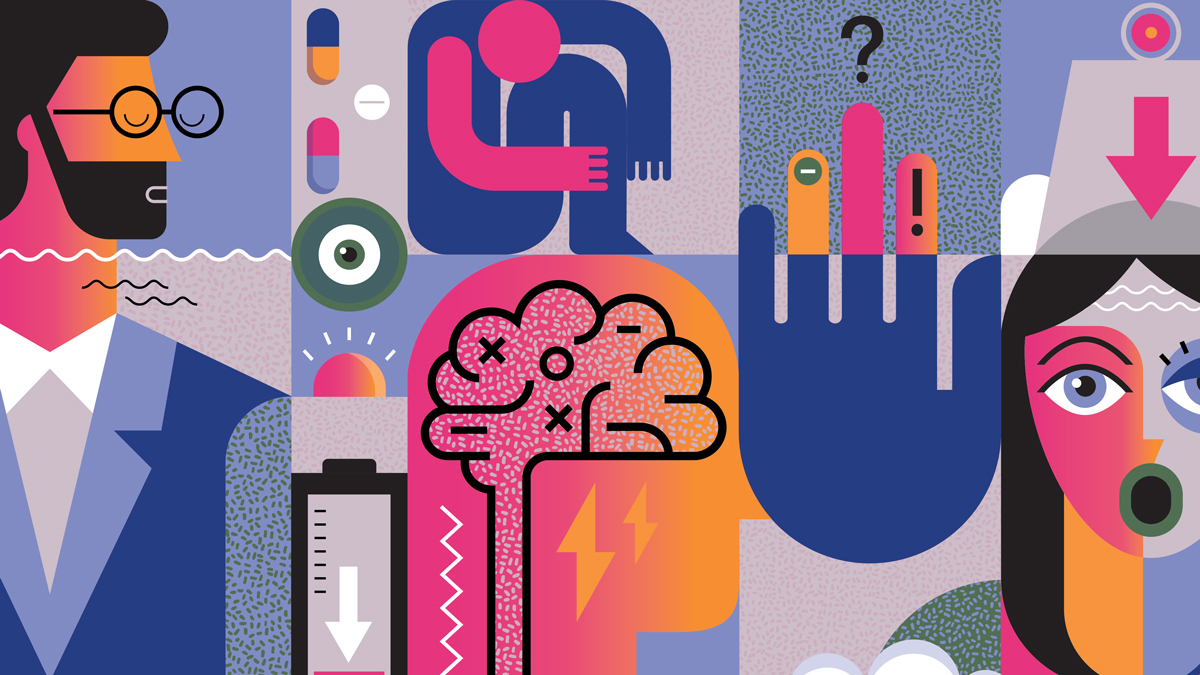At Studio Resonate, I spend my days working as a bit of an audio alchemist, blending sound science with sound art to help brands and agencies make sound decisions. And while the bulk of my work focuses on the use of audio in advertising, sonic branding and experiential activations, I also explore ways we can engage in “sonic interventions” by identifying problems in our lives, our businesses and our communities where the use of sound might offer innovative solutions.
Consider this sonic intervention: the power of “sonic tonics” to improve our mental health and well-being. There’s a growing body of robust empirical research demonstrating the therapeutic role that music and sound can play in a variety of contexts, including the context of our mental health and well-being.
Here are few practical tips, drawn from research, and offered to you as a “sound prescription” to improve mental health and wellness.
Sound start
While we might need a bit of a kick to get us out of bed in the morning, alarms can trigger a fight or flight response in our brains, increasing our heart rate, elevating our blood pressure and contributing to sleep inertia. Instead of a jolting alarm, try waking up to your favorite music instead. It can help you get your day started on the right foot—particularly if you can dance to it.
Sound sentiments
When we’re feeling sad, conventional wisdom might suggest that we listen to a happy tune to lift our spirits. However, we might do better choosing music that matches our mood, rather than trying to change it. It seems counterintuitive, but studies have shown that listening to sad music when we’re feeling down can actually induce pleasant emotions, akin to a friend who provides support and empathy after a loss.
There may be a physiological benefit that comes with listening to melancholy music, too, linked to prolactin, a hormone associated with crying that helps to curb grief. While some researchers believe sad music can trick the brain into engaging in a compensatory response by releasing prolactin, others suggest that we may find sad music pleasurable because we find it aesthetically beautiful.
Sound sleep
Lack of sleep can increase our risk for obesity, heart disease and infections, as well as exacerbate depression, anxiety and other mental disorders. Getting a good night’s sleep can reduce stress, help us think more clearly and improve our reflexes. Though studies suggest that listening to relaxing, classical music can lead to improved sleep quality, new research reveals that listening to catchy, repetitive music before going to bed may produce adverse side effects, triggering involuntary musical imagery that decreases the quality of sleep and increases daytime dysfunction. Instead of music at bedtime, try listening to soothing sounds of nature or white noise. These sounds can carry us to dreamland with an added benefit: masking other noises in the environment that might keep us from drifting off or interrupt a good night’s rest.
Sound nutrition
You are what you eat, the saying goes, and there’s research to suggest that our diet not only affects our physical health, but our mental health, too. One of the most surprising insights I’ve gained in exploring the relationship between sound and taste is that there’s also a relationship between sound and diet.
We’ve learned a lot by studying the effects of music, sound and noise in restaurant settings. In loud, noisy restaurants, people eat more food. Conversely, in low-lit restaurants that play soft music, food consumption tends to decrease—by up to 18% in one study. We think that in more relaxed, low-noise environments, we consume food more slowly, and are more aware of when we begin to feel full. Try to avoid noisy environments when eating, and if you’re dining at home, try putting on some relaxing tunes. Or try eating while wearing ear plugs, which might put you more in touch with the sounds of your own eating, a sonic hack that’s been shown to significantly decrease caloric intake.
Sound connections
Listening to music can bring us closer together, literally. Prior to the pandemic, Sonos, Apple and neuroscientist Daniel Levitin conducted an experiment in 30 homes, collecting data from Apple watches, iBeacons and nest cams. When music was playing, the average distance between household members decreased by 12%. They were 33% more likely to cook together, 15% more likely to laugh together and 18% more likely to utter the words, “I love you.” We also know that singing together and moving in time with the music increases pro-social behavior.
Covid-19 gave us an opportunity to examine the role music played in coping during lock downs and social distancing. Now, we’re just beginning to analyze data collected over the past year. Early results suggest that music has helped us relax, elevated our mood, kept us company, drawn us together, sustained a sense of community and improved our satisfaction with life.
I hope that some of these suggestions will help you harness the power of sound in new ways. While all these sonic tonics are drawn from research, it’s important to recognize that they are no substitute for counseling or therapy from a trained professional. If you’re feeling overwhelmed, or having a hard time coping, remember: You’re not alone.
—
Guest Author: www.adweek.com
This article first appeared in www.adweek.com Seeking to build and grow your brand using the force of consumer insight, strategic foresight, creative disruption and technology prowess? Talk to us at +971 50 6254340 or engage@groupisd.com or visit www.groupisd.com/story

